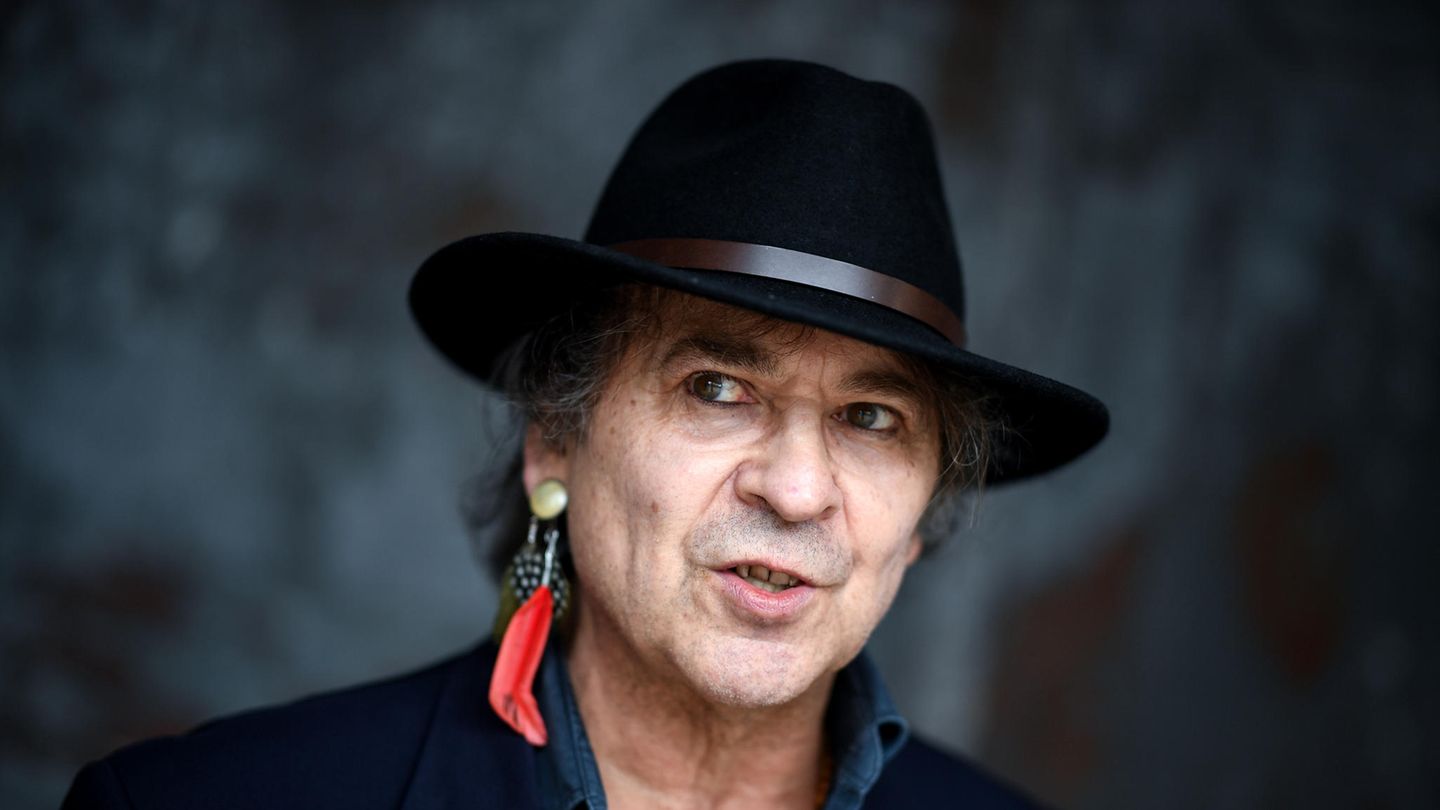The band Ton Steine Scherben still has cult status. Now another co-founder of the band has died: RPS Lanrue was 74 years old.
With “Destroy what destroys you” and “No power for anyone”, the band Ton Steine Scherben provided the soundtrack for the revolutionary part of the 70s. The musician known as RPS Lanrue and co-founder of the political rock band, Ralph Peter Steitz, has died. He died on Sunday in Berlin surrounded by his family at the age of 74, as his wife confirmed to the German Press Agency in Berlin. “Die Tageszeitung” had previously reported.
Tumult was part of the band and the musicians’ lives. The rock band around lead singer Rio Reiser had just been formed in Berlin and performed together for the first time on the island of Fehmarn in 1970. The 1970 Love and Peace Festival was supposed to be a kind of German Woodstock. To the outrage of the musicians, the box office disappeared. The political rockers played “Destroy what destroys you”. Reiser got the fans even more worked up. The first single from the album unfolded its elemental power: In the general tumult, the stage went up in flames.
“It was brilliant,” RPS Lanrue recalled in an interview with DPA a few years ago. He founded Ton Steine Scherben together with Reiser, who died in 1996.
RPS Lanrue met Rio Reiser in 1966
Ralph Peter Steitz (Lanrue) and Ralph Christian Möbius (Reiser) had a lot in common. They met in Nieder-Roden, Hesse, in 1966. Lanrue needed a guitarist and had Reiser play a Stones song. He sang it straight away.
As Beat Kings and De Galaxis they played covers and their first own songs, and were also influenced by the Stones.
Photo exhibition “Superreal Punk”
In the eye of the hurricane: The unbridled energy of the punk movement
Reiser went to West Berlin, Lanrue followed shortly after. In 1969 they wrote “Destroy what destroys you” for the play “Rita and Paul”. The song was directly related to the play. “Every evening a television with a right-wing extremist smashed to pieces,” remembered Lanrue. “We then played “Destroy” to go with it.”
Shortly afterwards, Reiser and Lanrue founded Ton Steine Scherben with bassist Kai Sichtermann and drummer Wolfgang Seidel. Over the years, there were numerous additions, breaks and changes in the line-up.
Ton Steine Scherben and the sound of revolt
In the original, “Macht kaputt, was euch kaputt macht” has an almost two-minute introduction; after slightly spherical first sounds, an increasingly aggressive crescendo follows with an unmistakable guitar riff by Lanrue. “When I just played it, the mood was there immediately,” the musician described the heated situation in the concerts.
The Scherben delivered the sound of revolt on three albums: “I don’t want to become what my age is” symbolized the generational conflict, the “Rauch-Haus-Song” is accompaniment for squatting, “Keine Macht für Niemand” stood for the urge for freedom and anarchy.
Much of the playlist about the fight against the establishment took place in Kreuzberg. In divided Berlin, the district was separated from the life of the rest of the western part of the city, the battleground of Ton Steine Scherben. “The invention of Kreuzberg” is, in the view of the “Tageszeitung”, the “historical feat of Ton Steine Scherben”.
Band received modest fees
The Scherben were supposed to play at many events. The fees were modest, organizers expected solidarity from the band. Reiser, Lanrue and other musicians lived on the “T-Ufer”, a commune on the Tempelhofer Ufer. Open house. Lots of visitors, unannounced intruders, police raids.
All of this became too much for Reiser and Lanrue in the mid-70s, and they moved with a small Scherben community to Fresenhagen in North Friesland. There, the fourth album “IV” was created, which even many Scherben fans hardly know. “My favorite album,” said Lanrue.
The Red Army Faction was formed in the year the political band was founded. Visits from RAF members to the Berlin Scherben commune were not uncommon. “They came and went from our place,” recalled Lanrue. Nevertheless, from the musician’s point of view, there was “not much” RAF in Ton Steine Scherben. “Although we got to know many protagonists, we always did our own thing,” said Lanrue. Armed combat and outright terror were not part of it.
Source: Stern
I am an author and journalist who has worked in the entertainment industry for over a decade. I currently work as a news editor at a major news website, and my focus is on covering the latest trends in entertainment. I also write occasional pieces for other outlets, and have authored two books about the entertainment industry.




